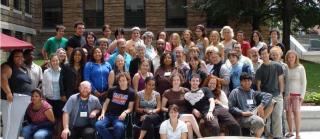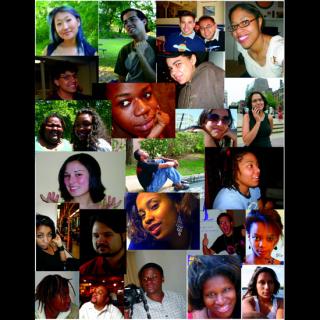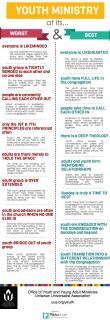#6 Major Models of Youth Programming
Competent volunteers and staff are familiar with the Web of Youth Ministry (PDF), the Six Pillars of Balanced Youth Ministry (PDF) and the Tapestry of Faith curricula. Adults should understand there are multiple Ways to Do Youth Ministry (PDF) including youth group and multigenerational worship. Volunteers and staff may want to become familiar with the books Relational Youth Ministry, Contemplative Youth Ministry and Youth Ministry 3.0.
Volunteers and staff should have a “back pocket” full of games to play and be able to articulate the deeper lessons in those games. Adults should be competent in leading worship with youth; if they are not, they may build those skills by partnering with the minister or worship arts committee.
One of the best ways to create lifelong Unitarian Universalists is to ensure that youth feel like they have a home in their spiritual community that goes beyond just meeting with other youth. A competent adult helps youth discover the multiple pathways to participating in the congregation. Volunteers and staff are likely to find themselves acting as liaison breaking down the barriers between generations.
Training: Youth Inclusive Multigenerational Ministries
Video recording (1 hour, 11 minutes)
Audio only (1 hour, 11 minutes)
HOSTED BY: Kim Sweeney (New England), Natalie Briscoe (Southern)
PRESENTED: April 12, 2017
We discuss exciting new ideas for augmenting the traditional youth group-based model, as well as mentor-based youth ministry and methods for creating intentional multigenerational communities with a focus on integrating youth through meaningful and respectful relationship.
Training: Models of Youth Ministry
Video recording (1 hour, 6 minutes)
Audio only (1 hour, 6 minutes)
HOSTED BY: Kim Sweeney (New England), Natalie Briscoe (Southern)
PRESENTED: May 10, 2017
Panelists Danielle Bannister (ME), Rev. Heather Concannon (MA), Alix Klinenberg (CA), and Rev. Paul Sawyer (VT) have employed exciting models of youth ministry in their congregations and tell us how they went about making these changes, the steps they took in implementing these models, and what they learned to avoid along the way.


